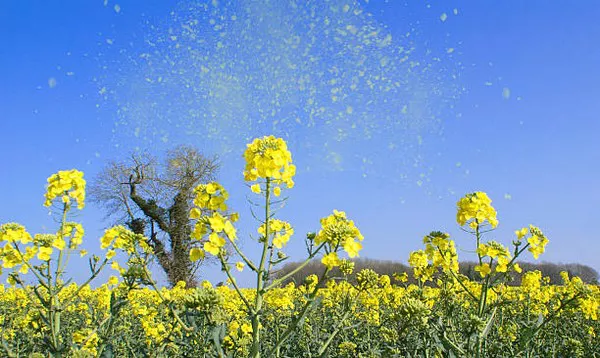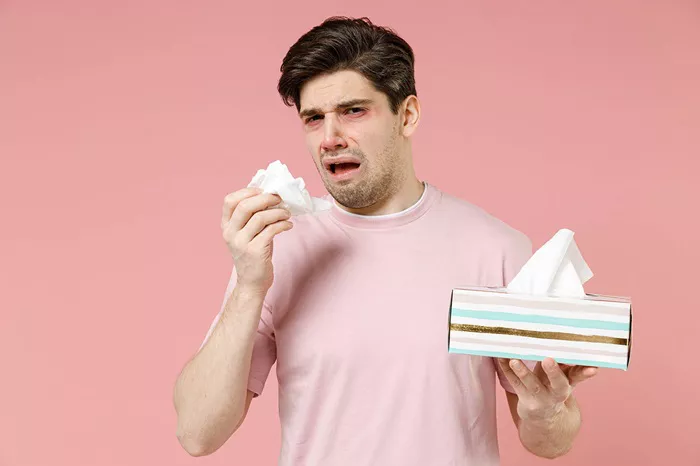Pollen is a fine powder produced by plants as part of their reproductive process. While it plays a crucial role in the ecosystem by aiding plant fertilization, pollen can have adverse effects on humans, particularly during the allergy season. One of the most common areas affected by pollen is the throat. This article delves into what does pollen impacts your throat, the underlying mechanisms, symptoms, and effective management strategies.
How Pollen Enters the Body
Pollen grains are lightweight and can be easily carried by the wind over long distances. When these microscopic particles are inhaled through the nose or mouth, they can adhere to the mucous membranes lining the respiratory tract. From there, pollen can travel down to the throat, causing irritation and triggering an immune response.
The Immune Response to Pollen
The human body recognizes pollen as a foreign substance, leading to an immune response aimed at eliminating the perceived threat. This process involves the activation of immune cells, such as mast cells and basophils, which release histamines and other inflammatory mediators. These substances cause the familiar symptoms of allergic reactions, including those affecting the throat.
Symptoms of Pollen-Induced Throat Irritation
When pollen triggers an allergic reaction, it can result in a range of symptoms that affect the throat. These include:
Sore Throat: Pollen can cause inflammation of the throat tissues, leading to soreness and discomfort.
Itchy Throat: Histamine release can cause an itchy sensation in the throat.
Throat Clearing: Excess mucus production as a result of the body’s response to pollen can lead to frequent throat clearing.
Dry Throat: Pollen can cause dryness in the throat, exacerbating discomfort.
Hoarseness: Inflammation and irritation can affect the vocal cords, leading to a hoarse voice.
Mechanisms Behind Throat Irritation
Several physiological mechanisms contribute to the throat irritation caused by pollen:
Inflammation: The release of histamines and other inflammatory chemicals leads to swelling and redness in the throat tissues.
Mucus Production: The body’s attempt to flush out pollen can result in increased mucus production, which can accumulate in the throat.
Nerve Stimulation: Pollen can stimulate sensory nerves in the throat, leading to itching and the urge to clear the throat.
Factors Influencing Throat Symptoms
The severity of throat symptoms caused by pollen can vary based on several factors:
Pollen Concentration: Higher concentrations of pollen in the air can lead to more pronounced symptoms.
Pollen Type: Different types of pollen (e.g., tree, grass, weed) can have varying effects on individuals.
Allergy Sensitivity: People with heightened sensitivity to pollen may experience more severe throat symptoms.
Weather Conditions: Windy and dry conditions can increase the amount of pollen in the air, exacerbating symptoms.
Common Sources of Pollen
Understanding the sources of pollen can help in identifying and managing exposure. Common sources include:
Trees: Birch, oak, cedar, and pine trees release significant amounts of pollen during their respective pollination periods.
Grasses: Grasses such as ryegrass, timothy grass, and Kentucky bluegrass are prolific pollen producers.
Weeds: Ragweed, sagebrush, and pigweed are common weed pollens that contribute to allergy symptoms.
See Also: What Are Mild Symptoms of Schizophrenia?
Diagnosis of Pollen Allergies
Diagnosing pollen allergies typically involves a combination of medical history, physical examination, and specific allergy tests:
Medical History: Discussing symptoms and their correlation with pollen seasons can provide valuable insights.
Physical Examination: A healthcare provider may examine the throat, nose, and eyes for signs of allergic inflammation.
Allergy Testing: Skin prick tests or blood tests can identify specific pollen allergens causing the reaction.
Treatment and Management Strategies
Effective management of pollen-induced throat irritation involves a combination of preventive measures, medications, and lifestyle modifications:
Avoidance: Minimizing exposure to pollen is the most effective way to prevent symptoms. This can include staying indoors during peak pollen times, keeping windows closed, and using air purifiers.
Medications: Over-the-counter antihistamines, decongestants, and nasal corticosteroids can help alleviate symptoms. In severe cases, prescription medications may be necessary.
Hydration: Drinking plenty of fluids can help soothe a dry throat and thin mucus secretions.
Gargling: Gargling with salt water can help reduce throat inflammation and discomfort.
Honey: Consuming honey may provide a soothing effect on the throat and reduce irritation.
Natural Remedies and Alternative Treatments
In addition to conventional treatments, several natural remedies and alternative treatments can help manage pollen-induced throat irritation:
Herbal Teas: Teas made from chamomile, ginger, or licorice root can have soothing properties for the throat.
Steam Inhalation: Inhaling steam can help moisten the throat and relieve dryness and irritation.
Essential Oils: Some essential oils, such as eucalyptus and peppermint, may provide relief when used in a diffuser or added to hot water for steam inhalation.
Lifestyle Adjustments to Minimize Pollen Exposure
Making certain lifestyle adjustments can significantly reduce exposure to pollen and the associated throat symptoms:
Timing Outdoor Activities: Avoid outdoor activities during peak pollen times, typically early morning and late afternoon.
Wearing Protective Gear: Wearing sunglasses and a mask can help reduce pollen contact with the eyes and respiratory system.
Showering and Changing Clothes: After spending time outdoors, showering and changing clothes can help remove pollen from the body and clothing.
Maintaining Indoor Air Quality: Using high-efficiency particulate air (HEPA) filters and keeping indoor environments clean can reduce indoor pollen levels.
When to See a Doctor
While many cases of pollen-induced throat irritation can be managed with over-the-counter treatments and lifestyle changes, there are situations where medical attention is necessary:
Severe Symptoms: If symptoms are severe or persistent, it is important to seek medical advice.
Difficulty Breathing: Any difficulty breathing or shortness of breath should be addressed immediately.
Infection Signs: Symptoms such as fever, pus-filled throat, or swollen lymph nodes may indicate a secondary infection that requires medical treatment.
Long-Term Management and Immunotherapy
For individuals with severe or persistent pollen allergies, long-term management strategies such as immunotherapy may be recommended:
Allergy Shots: Immunotherapy involves regular injections of small amounts of allergens to build tolerance over time.
Sublingual Tablets: These tablets dissolve under the tongue and contain small amounts of allergens, helping to build tolerance without injections.
The Role of Diet in Managing Pollen Allergies
Dietary choices can also influence the severity of pollen allergy symptoms. Some foods can exacerbate symptoms, while others may help reduce inflammation:
Anti-Inflammatory Foods: Foods rich in antioxidants, omega-3 fatty acids, and vitamins can help reduce inflammation and support the immune system.
Avoiding Certain Foods: During peak pollen seasons, avoiding foods that cross-react with pollen (e.g., certain fruits, vegetables, and nuts) can help reduce symptoms.
Conclusion
Pollen can have a significant impact on the throat, causing symptoms such as soreness, itching, dryness, and hoarseness. Understanding the mechanisms behind these symptoms and implementing effective management strategies can greatly improve quality of life during allergy seasons. By taking preventive measures, using appropriate medications, and exploring natural remedies, individuals can minimize the discomfort caused by pollen and enjoy a healthier, more comfortable throat. If symptoms persist or worsen, seeking medical advice is crucial to ensure proper diagnosis and treatment.
[inline_related_posts title=”You Might Be Interested In” title_align=”left” style=”list” number=”6″ align=”none” ids=”10497,10479,10427″ by=”categories” orderby=”rand” order=”DESC” hide_thumb=”no” thumb_right=”no” views=”no” date=”yes” grid_columns=”2″ post_type=”” tax=””]


































